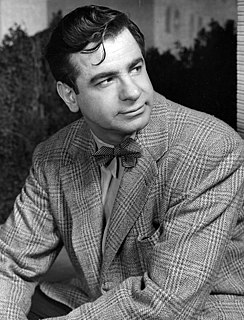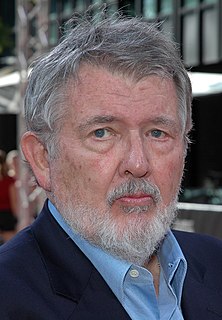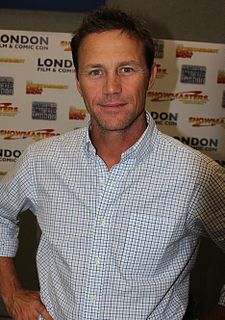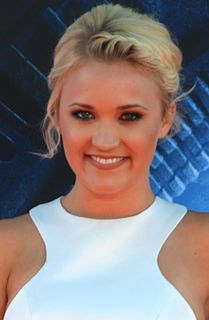A Quote by Liam Neeson
In bed at night, I could be reading some book, and I'll come across a sentence that's totally unrelated to some scene I did years ago. But I'll play the scene back in my mind and think, I did that wrong - I should've opened the door more slowly.
Related Quotes
I could play a cop, I could play a crook, I could play a lawyer, I could play a dentist, I could play an art critic-I could play the guy next door. I am the guy next door. I could play Catholic, Jewish, Protestant. As a matter of fact, when I did The Odd Couple, I would do it a different way each night. On Monday I'd be Jewish, Tuesday Italian, Wednesday Irish-German-and I would mix them up. I did that to amuse myself, and it always worked.
I also think within the scene, a specific scene - if I were to play a part that I played 10 years ago now, my interpretation of that scene would be totally different. I would be making different choices. Because I can't somehow subtract all of the experiences that I've had in my life. And it's fascinating to see, because somewhere I'm very reflective in that. You know, I've been playing basically actually close to 40 years old, so I'm somewhere lost in age in this movie. But it's been fascinating to see that I can't subtract that time.
It's such a unique story. Book of Joshua in the Bible wasn't always my favorite book, by the way. Only some ago did I realize that this book covers a seven-year period in the history of ancient Israel in which they literally went undefeated.They did have one setback, but outside of that, they defeated over 30 kings. They recaptured the Promised Land. They did what their ancestors said they could not.
We did monologues and scenes, and New York I did a scene from Amadeus and a monologue from Pounding Nails in the Floor With My Forehead by Eric Bogosian, and then in L.A. I switched the scene to This is Our Youth and did the same monologue. I was spiky-haired, super skinny. A lot of people were like, "You should come here and do a sitcom." That was the feedback that I got. Obviously it was quite a different journey than the one I've actually had, but I just listened to people.
I don't think that any scene [in Pineapple Express] is word for word how you'd find it in the script. Some of it was much more loose than others. The last scene with me, Danny [McBride] and James [Franko] in the diner - there was never even a script for that scene. Usually we write something, but for that scene we literally wrote nothing.
When I was a kid, I used to be afraid of the dark. I would stand at my door, turn the light off and dive into bed. One night, as I did that, there was this gigantic spider next to my pillow. I hit the bed and bounced straight back up When I turned the light back on, it was already gone. I could not sleep in my room for days.
Even one word, or certainly one sentence, should be able to describe the basic characteristic that the scene has, or the character has, or the story has. And then you begin to detail that one spine, and you have offshoots from that spine, and it becomes more and more complex, but all of it stems from that one-word, one-line theme, which can give the character, the scene, or the play its uniqueness.
It's like you might have some great scene that you love but for some reason - and you can't necessarily put your finger on it - the movie's not working or it seems slow or ponderous in some way, and even though it has your favorite scene in there, actually the favorite scene is the culprit. That's the painful thing about editing, is trying to locate those things that are holding the movie back and then having the guts to cut them. And it is painful to do it.
I've begun to believe more and more that movies are all about transitions, that the key to making good movies is to pay attention to the transition between scenes. And not just how you get from one scene to the next, but where you leave a scene and where you come into a new scene. Those are some of the most important decisions that you make. It can be the difference between a movie that works and a movie that doesn't.




































